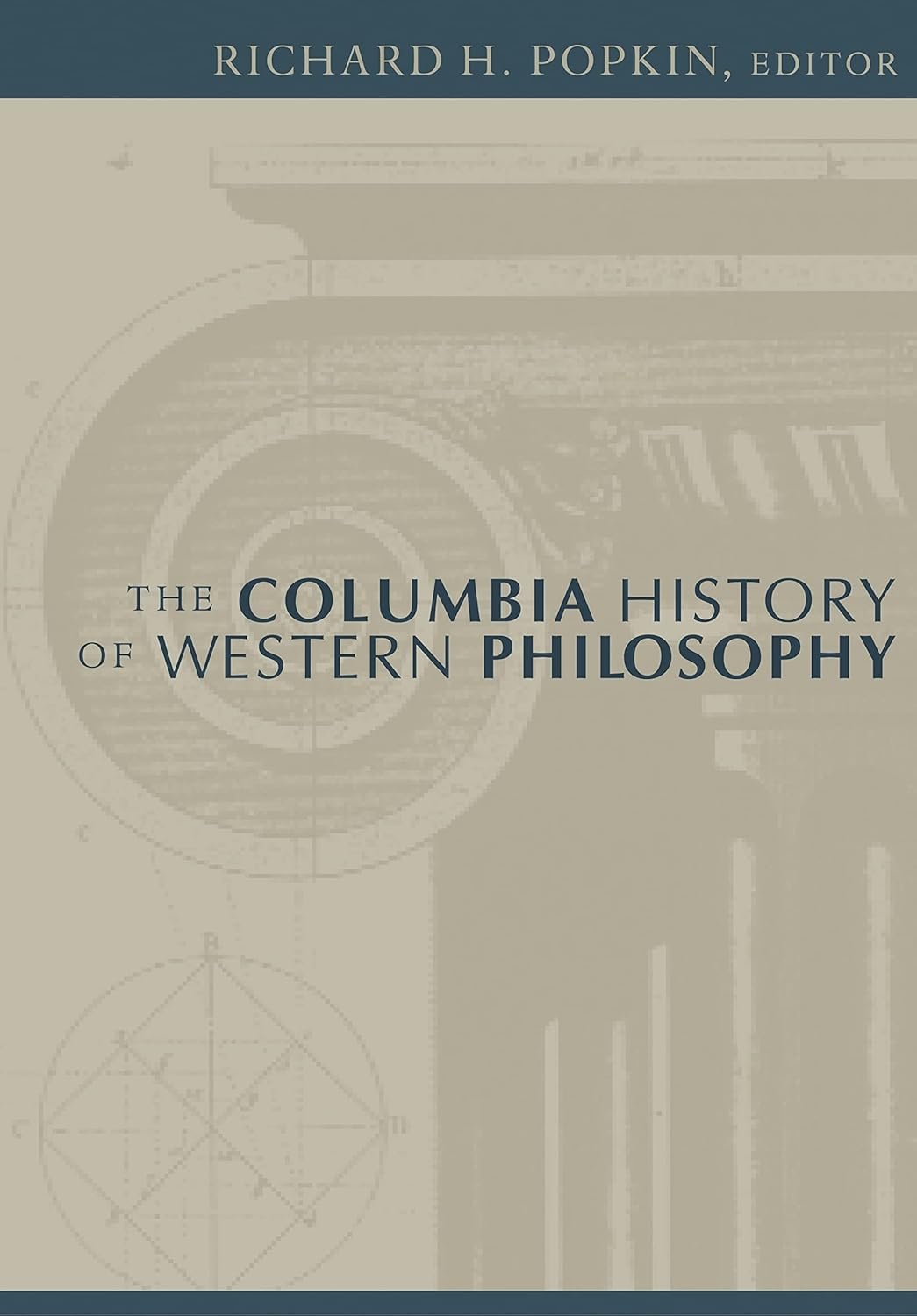- The Columbia History of Western Philosophy

- Editor: Richard Popkin
- Publisher: Columbia University Press
- Publication Date: January 15, 1999
- Print Length: 864 Pages
- Product Description
Richard Popkin has assembled 63 leading scholars to forge a highly approachable chronological account of the development of Western philosophical traditions. From Plato to Wittgenstein and from Aquinas to Heidegger, this volume provides lively, in-depth, and up-to-date historical analysis of all the key figures, schools, and movements of Western philosophy.
The Columbia History significantly broadens the scope of Western philosophy to reveal the influence of Middle Eastern and Asian thought, the vital contributions of Jewish and Islamic philosophers, and the role of women within the tradition. Along with a wealth of new scholarship, recently discovered works in 17th- and 18th-century philosophy are considered, such as previously unpublished works by Locke that inspire a new assessment of the evolution of his ideas. Popkin also emphasizes schools and developments that have traditionally been overlooked. Sections on Aristotle and Plato are followed by a detailed presentation on Hellenic philosophy and its influence on the modern developments of materialism and scepticism. A chapter has been dedicated to Jewish and Moslem philosophical development during the Middle Ages, focusing on the critical role of figures such as Averroës and Moses Maimonides in introducing Christian thinkers to classical philosophy. Another chapter considers Renaissance philosophy and its seminal influence on the development of modern humanism and science.
Turning to the modern era, contributors consider the importance of the Kaballah to Spinoza, Leibniz, and Newton and the influence of popular philosophers like Moses Mendelssohn upon the work of Kant. This volume gives equal attention to both sides of the current rift in philosophy between continental and analytic schools, charting the development of each right up to the end of the 20th century.
Each chapter includes an introductory essay, and Popkin provides notes that draw connections among the separate articles. The rich bibliographic information and the indexes of names and terms make the volume a valuable resource.
Combining a broad scope and penetrating analysis with a keen sense of what is relevant for the modern reader, The Columbia History of Western Philosophy will prove an accessible introduction for students and an informative overview for general readers.
- About the Editor
Richard H. Popkin was professor emeritus, at Washington University, St. Louis, and adjunct professor of philosophy and history at UCLA. He was the founding director of the International Archives of the History of Ideas, and president emeritus and founding editor of the Journal of the History of Philosophy. Among his many books are The Third Force in Seventeenth-Century Thought; The History of Skepticism from Erasmus to Spinoza; Introduction to Philosophy (with Avrum Stroll); and The High Road to Pyrrhonism.
- Reviews
From Library Journal:
“This work ranges over the whole history of Western philosophy, from the pre-Socratics to 20th-century philosophy, both analytic and continental. In doing so, moreover, it does not restrict itself merely to major philosophers but includes more than the usual few sentences ordinarily accorded minor figures. The accounts, on the whole, are accurate and clearly written, though some of those about 20th-century continental philosophy are trapped within the muddled discourse of their subject matter. Although only the sections on medieval Christian philosophy and 20th-century analytic philosophy have single authors (S.F. Brown and A. Stroll, respectively), differences in writing do not distract. The section on skepticism, as might be expected from Popkin’s authority on the subject, is especially good, as are Stroll’s succinct explanations of technical matters. Highly recommended for academic and large libraries.” Robert Hoffman, York College of CUNY, Stony Brook, NY
Copyright 1999 Reed Business Information, Inc.
“Undoubtedly slated to be a standard on any literate shelf for generations to come… It is eminently readable and enjoyable.” 15 Minutes Magazine
“The volume is a fitting testimonial to Popkin’s life’s work.” Douglas Moggach, The European Legacy
